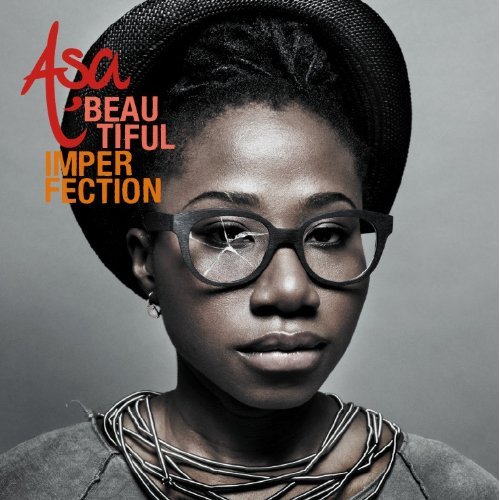
Asa – Beautiful Imperfection
Soul singer Asa follows up her eponymous debut album with a fine collection of songs that demonstrate a growing maturity to her musical approach.
The arrangements are stark throughout, the instruments largely subdued. This gives plenty of room for the vocals and Asa uses that space well. It is an assured performance, full of quality, as she lets her voice soars with confident ease.
And there is an uplifting feel to many of the tracks, which deal largely with relationship issues although there are some more questioning tracks that address larger social issues.
The opening Why Can’t We has a high tempo, and is almost pop song, But it hooks you into the album right from the start. Maybe, with its reggae guitar and the Hammond organ’s trademark sound, is slower but no less appealing.
Be My Man will be the first single from the album. This is a jazz infused pop song with faster vocal delivery that turns what could have been a plea for love into something joyful.
Preacher Man, perhaps my favourite track on the album, slows things down. It has a soulful delivery and is a quite beautiful ballad with an almost jazz feel
There are three tracks where Asa sings predominately in the West African language Yoruba. Bimpé is an up-tempo track with a distorted guitar sound that would not be out of place in a rock track. Oré is much slower while Broda Olé features a quirky keyboard intro.
The Way I Feel and OK OK are perhaps the weakest tracks here. Not that they are bad songs, but simply because they are very basic pop songs that seem like filler in the context of the quality around them.
The future single Drummer Girl by contrast has a simple melody and soulful lyrics that lift it into a higher plane.
The album finishes with two contrasting songs. Baby Gone is soulful soulful but feels like it could have been delivered much more emotionally. It is almost too smooth. Questions, in contrast, has a heartfelt vocal over a gentle rhythm and closes the album in fine style.
There is perhaps more of a traditional pop feel to this release than in Asa’s debut album. This isn’t a bad thing however and the singles should again reach the higher end of the charts.
And the album should sell well too. It is difficult to define exactly where this fusion of soul, reggae and funk with influence from the Nigerian roots of the singer fits. Perhaps it is easiest simply to say that Asa writes and sings fine, radio friendly pop songs.
